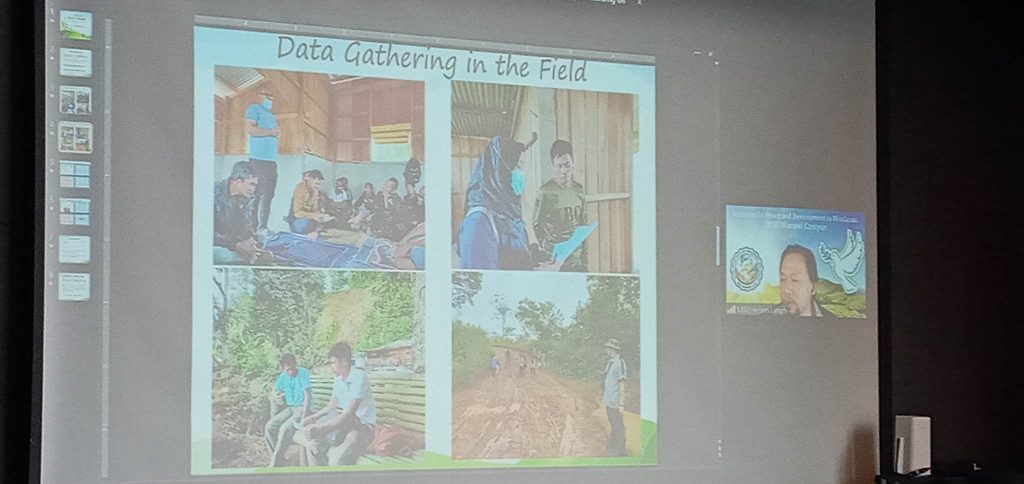Dr. Acram A. Latiph
Institute for Peace and Development in Mindanao, MSU Main Campus, Marawi
The Institute for Peace and Development in Mindanao participated in the International Seminar on Impact Measurement Workshop for PVE Practitioners held at the Novotel Ploenchit Bangkok, Thailand sponsored by the UNDP on 15-17 March 2023. IPDM shared its extensive research, experiences, findings, and studies on preventing and countering violent extremism, especially in the Bangsamoro. The prestigious events composed of many international experts on PCVE throughout the world.
UNDP will organize a workshop to enable Country Offices and partners—in government, civil society, academia and private sector as relevant—with expertise and experience of building M&E systems for peace, to share lessons from their existing successful work. The purpose of this peer-learning exchange is to help to sustain, scale, and replicate existing accomplishments on M&E.
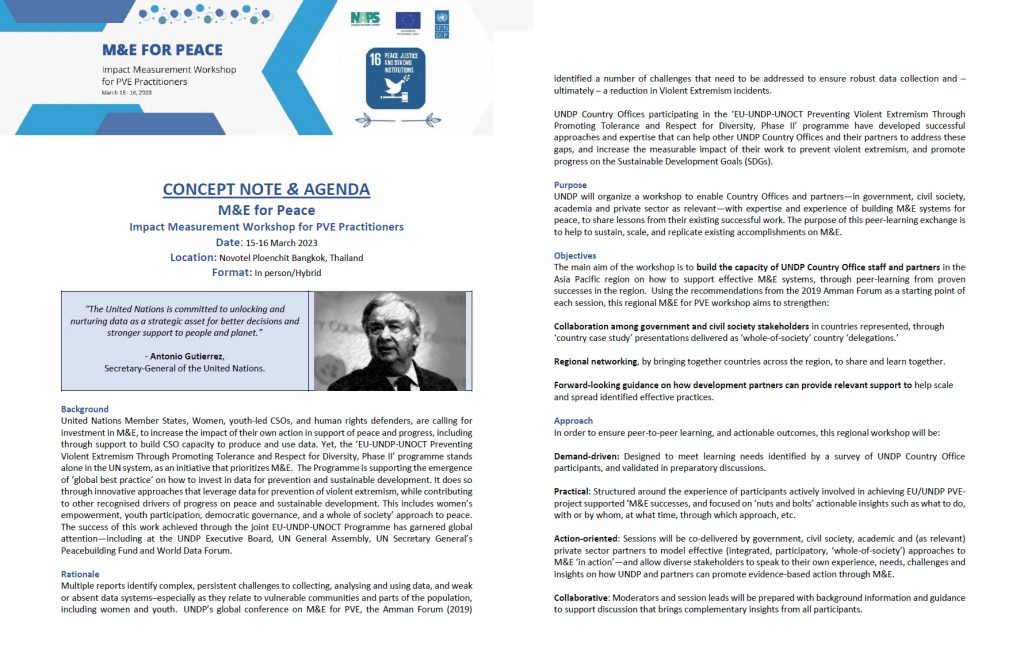
The main aim of the workshop is to build the capacity of UNDP Country Office staff and partners in the Asia Pacific region on how to support effective M&E systems, through peer-learning from proven successes in the region. Using the recommendations from the 2019 Amman Forum as a starting point of each session, this regional M&E for PVE workshop aims to strengthen:
Collaboration among government and civil society stakeholders in countries represented, through ‘country case study’ presentations delivered as ‘whole-of-society’ country ‘delegations.’
Regional networking, by bringing together countries across the region, to share and learn together.
Forward-looking guidance on how development partners can provide relevant support to help scale and spread identified effective practices.
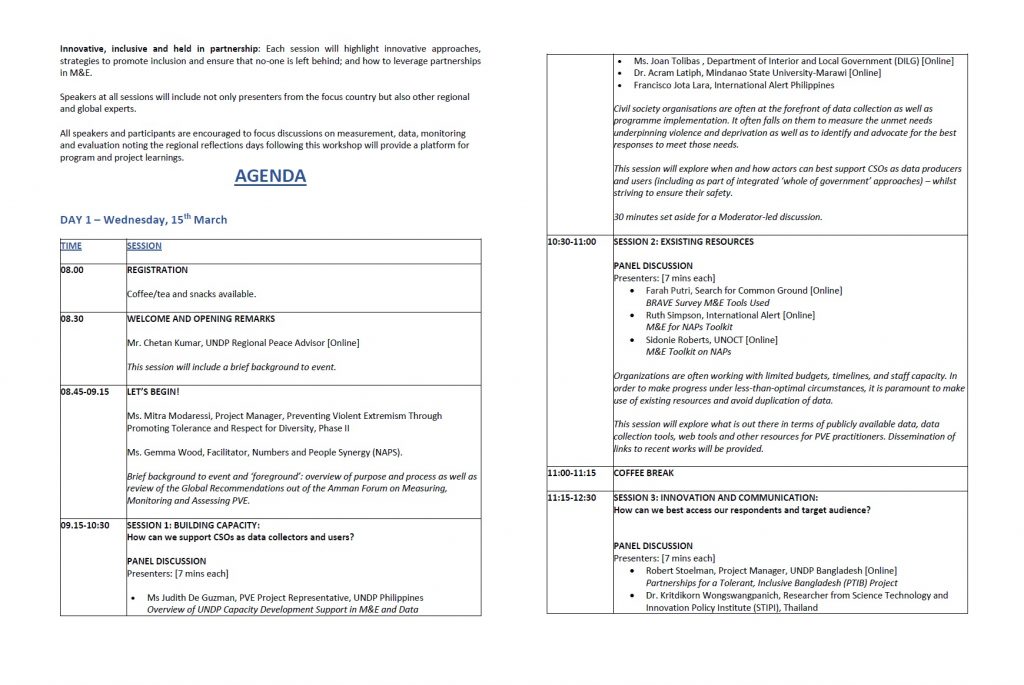
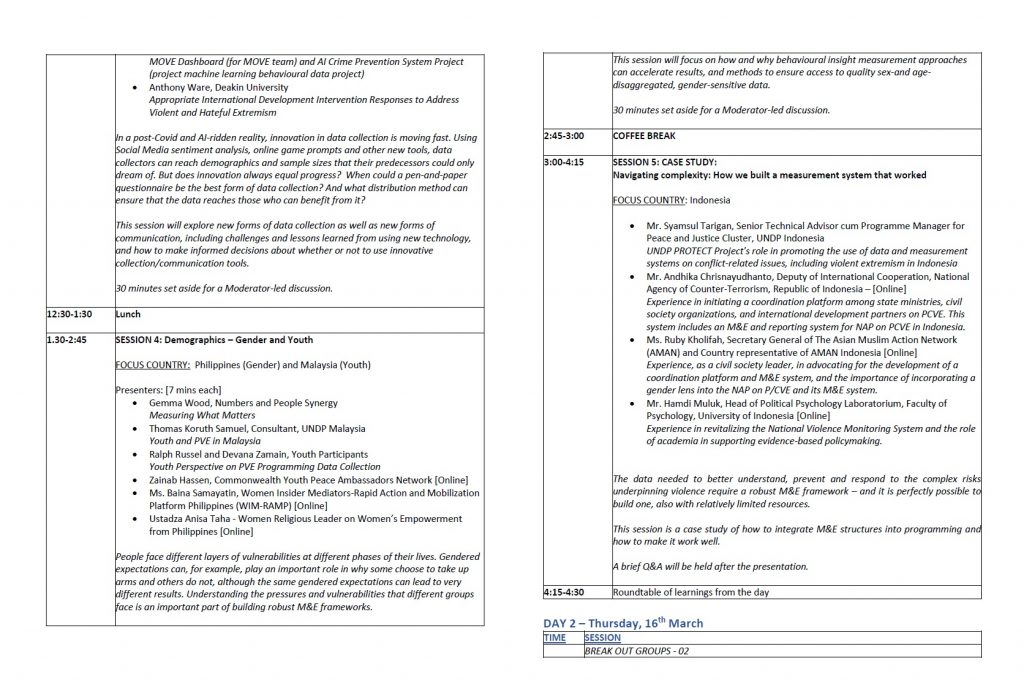
Approach
In order to ensure peer-to-peer learning, and actionable outcomes, this regional workshop will be:
Demand-driven: Designed to meet learning needs identified by a survey of UNDP Country Office participants, and validated in preparatory discussions.
Practical: Structured around the experience of participants actively involved in achieving EU/UNDP PVE-project supported ‘M&E successes, and focused on ‘nuts and bolts’ actionable insights such as what to do, with or by whom, at what time, through which approach, etc.
Action-oriented: Sessions will be co-delivered by government, civil society, academic and (as relevant) private sector partners to model effective (integrated, participatory, ‘whole-of-society’) approaches to M&E ‘in action’—and allow diverse stakeholders to speak to their own experience, needs, challenges and insights on how UNDP and partners can promote evidence-based action through M&E.
Collaborative: Moderators and session leads will be prepared with background information and guidance to support discussion that brings complementary insights from all participants.
Innovative, inclusive and held in partnership: Each session will highlight innovative approaches, strategies to promote inclusion and ensure that no-one is left behind; and how to leverage partnerships in M&E.
Speakers at all sessions will include not only presenters from the focus country but also other regional and global experts.
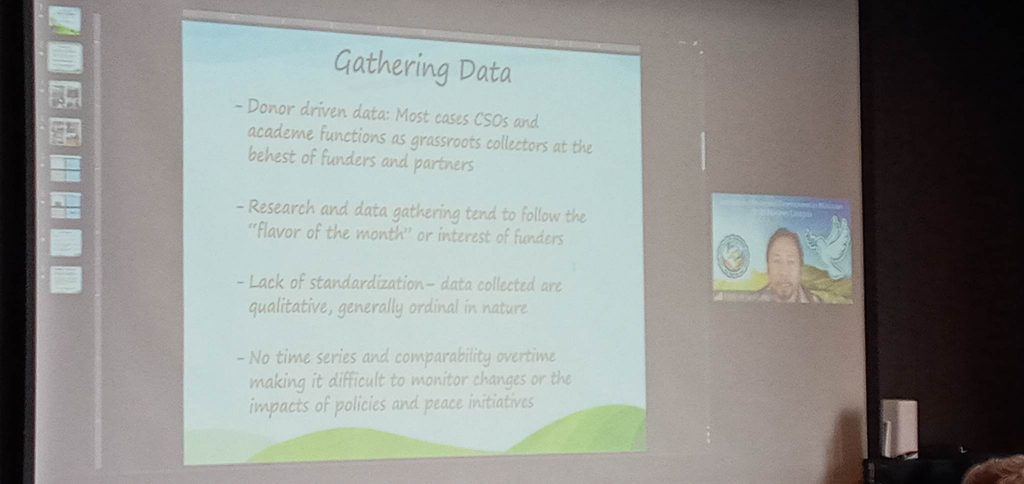
All speakers and participants are encouraged to focus discussions on measurement, data, monitoring and evaluation noting the regional reflections days following this workshop will provide a platform for program and project learnings.
